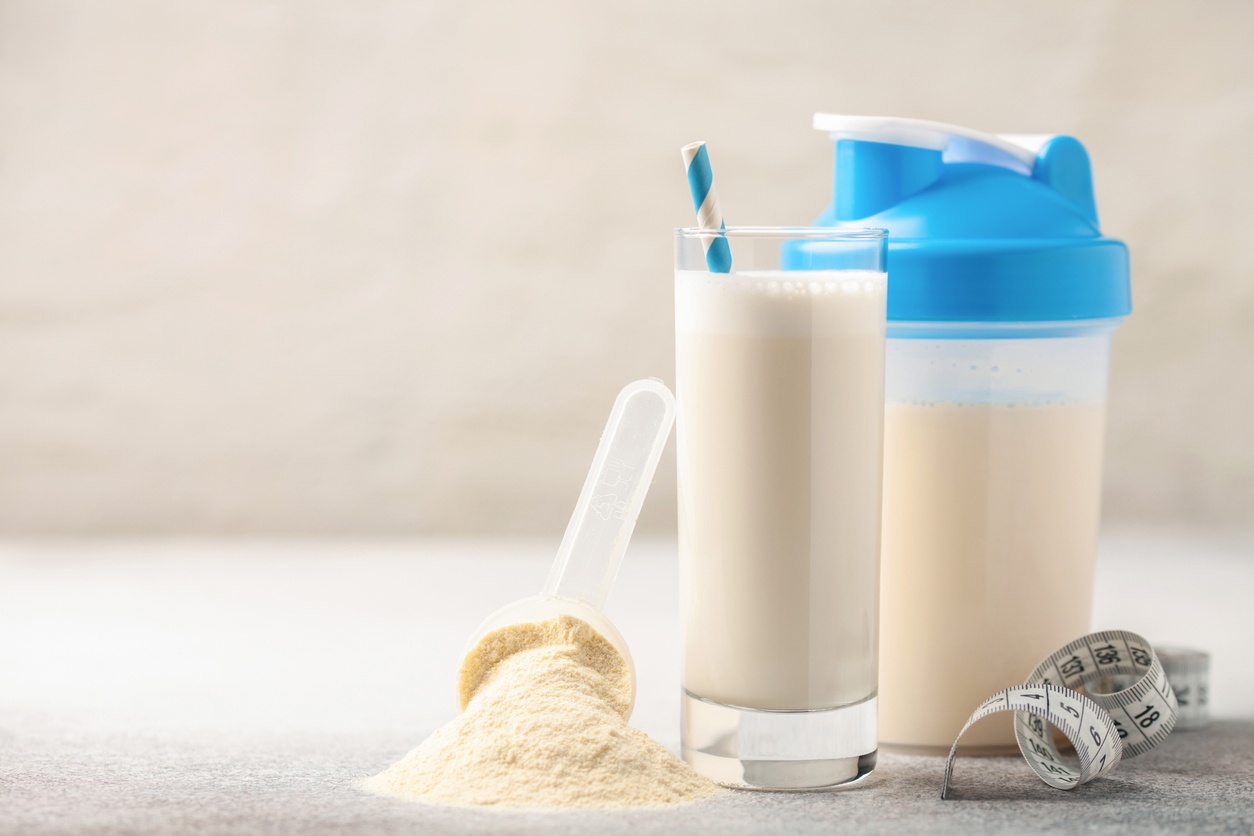
Protein shakes
Protein shakes have become very popular in recent years, especially among people who practice sports and train in the gym, as they are credited with the ability to aid in muscle recovery and muscle mass gain. However, many commercial protein shakes contain a large amount of processed ingredients and artificial additives, making them ultra-processed foods. These shakes often contain protein powders, which are derived from milk or soy, and are subjected to chemical processes to separate the proteins from other food components. In addition, sugar, artificial sweeteners, flavorings, colorings and other additives are often added to improve their taste and texture. In general, commercial protein shakes can contain significant amounts of sugar and other processed ingredients, which can increase the risk of chronic diseases, such as type 2 diabetes and cardiovascular disease. Therefore, it is important to read food labels and opt for natural and less processed protein sources, such as lean meats, eggs, nuts and seeds.
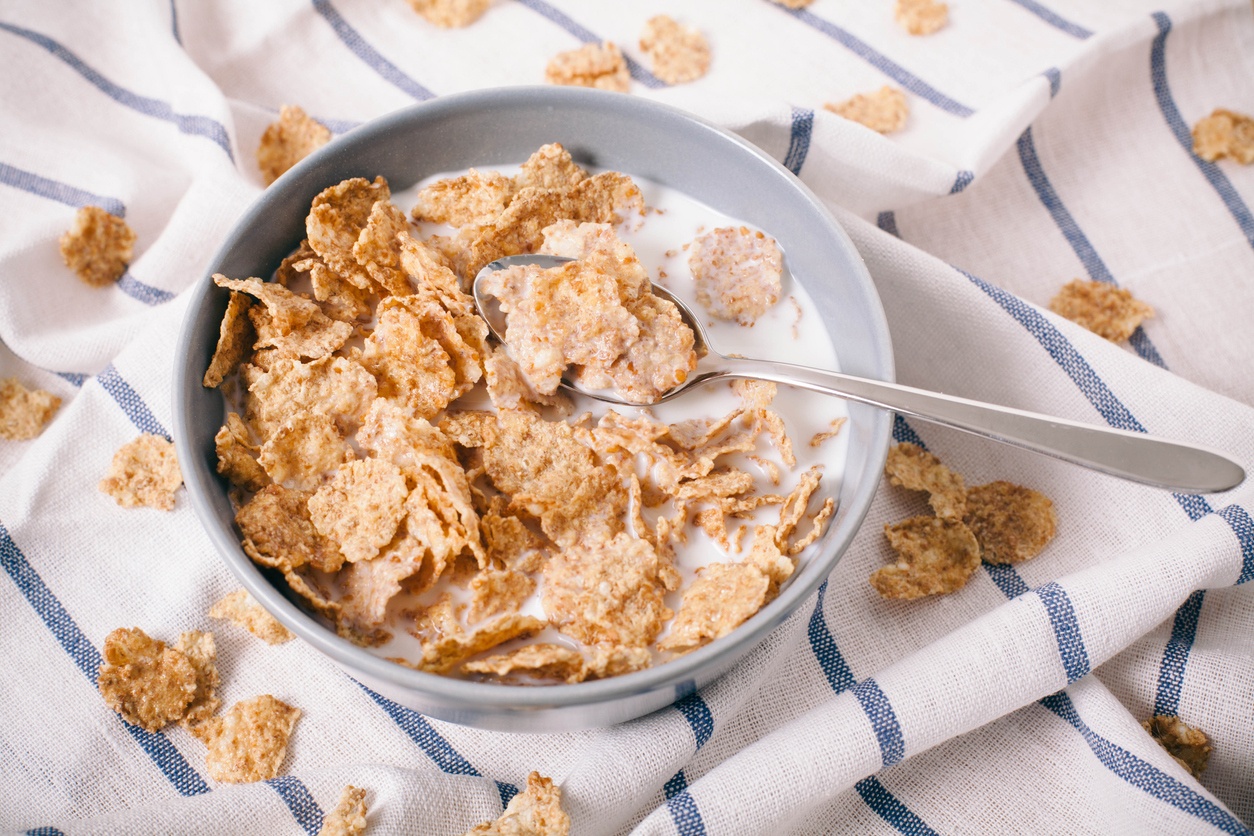
Breakfast cereals
Breakfast cereals are a popular food in many households, especially among children, as they are credited with being a quick, easy and nutritious breakfast option. However, many of these commercial cereals contain a large amount of processed ingredients and artificial additives, making them ultra-processed foods. In general, breakfast cereals are made from grains, such as corn, wheat, oats and rice, which are processed and refined to create different shapes and textures. Sugar, high fructose corn syrups, artificial sweeteners, flavorings and colorings are then added to enhance their taste and appearance. In addition, many commercial breakfast cereals contain very little fiber and protein, which can cause blood sugar levels to rise rapidly after eating them and make you feel hungry soon afterward. In addition, the high sugar and refined carbohydrate content in breakfast cereals can increase the risk of developing chronic diseases such as type 2 diabetes and cardiovascular disease.
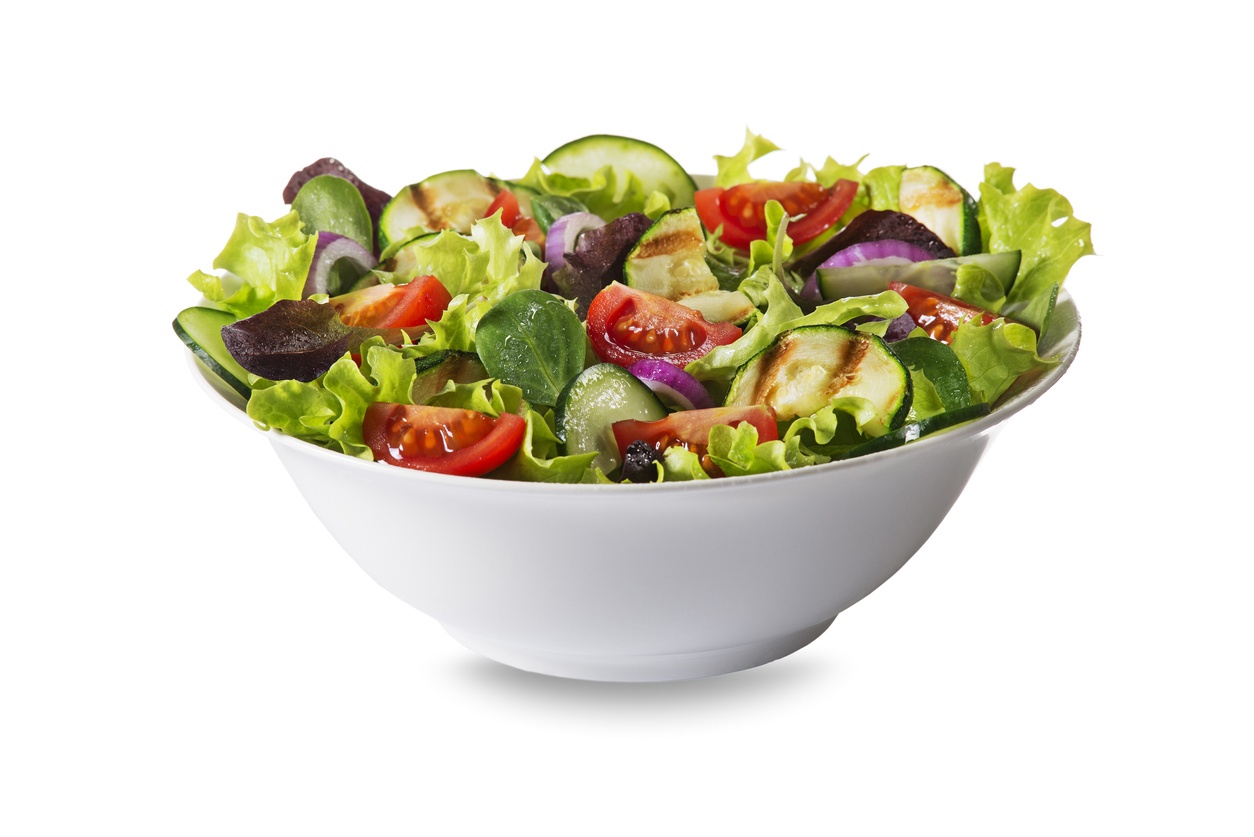
Prepared salads
Prepared salads are often promoted as a healthy option for a quick and easy meal, especially for those looking to lose weight or lead a healthier lifestyle. However, many commercial prepared salads contain a large amount of processed ingredients and artificial additives, making them ultra-processed foods. In general, commercially prepared salads often contain a mixture of raw vegetables, such as lettuce, carrots, tomatoes and cucumbers, along with other processed ingredients, such as processed meats, cheese, croutons, dressings and sauces. These processed ingredients often contain high levels of salt, sugar, saturated fats and artificial additives, which can have a negative effect on health if consumed in excess. In addition, prepared salads can lose some of their nutrients due to processing and storage time. For example, raw vegetables can lose some of their vitamins and minerals when they are washed and cut and stored for several days in sealed bags.

Dried fruits
Dried fruits are often considered a healthy snack option because they are a source of vitamins, minerals and fiber. However, many commercial dried fruits contain a large amount of added sugars and preservatives, making them ultra-processed foods. In general, dried fruits are made by removing the water from fresh fruits so that they can be stored for a longer period of time. The drying process concentrates the nutrients in the fruit and increases its natural sugar content, which can be beneficial to health. However, many commercial dried fruits are processed with added sugars, syrups and preservatives to improve their flavor and increase their shelf life. In addition, dried fruits have a very high caloric density compared to fresh fruits. For example, one cup of raisins contains about 460 calories, while one cup of fresh grapes contains about 60 calories. Therefore, excessive consumption of dried fruits may contribute to weight gain and an increased risk of obesity-related chronic diseases.
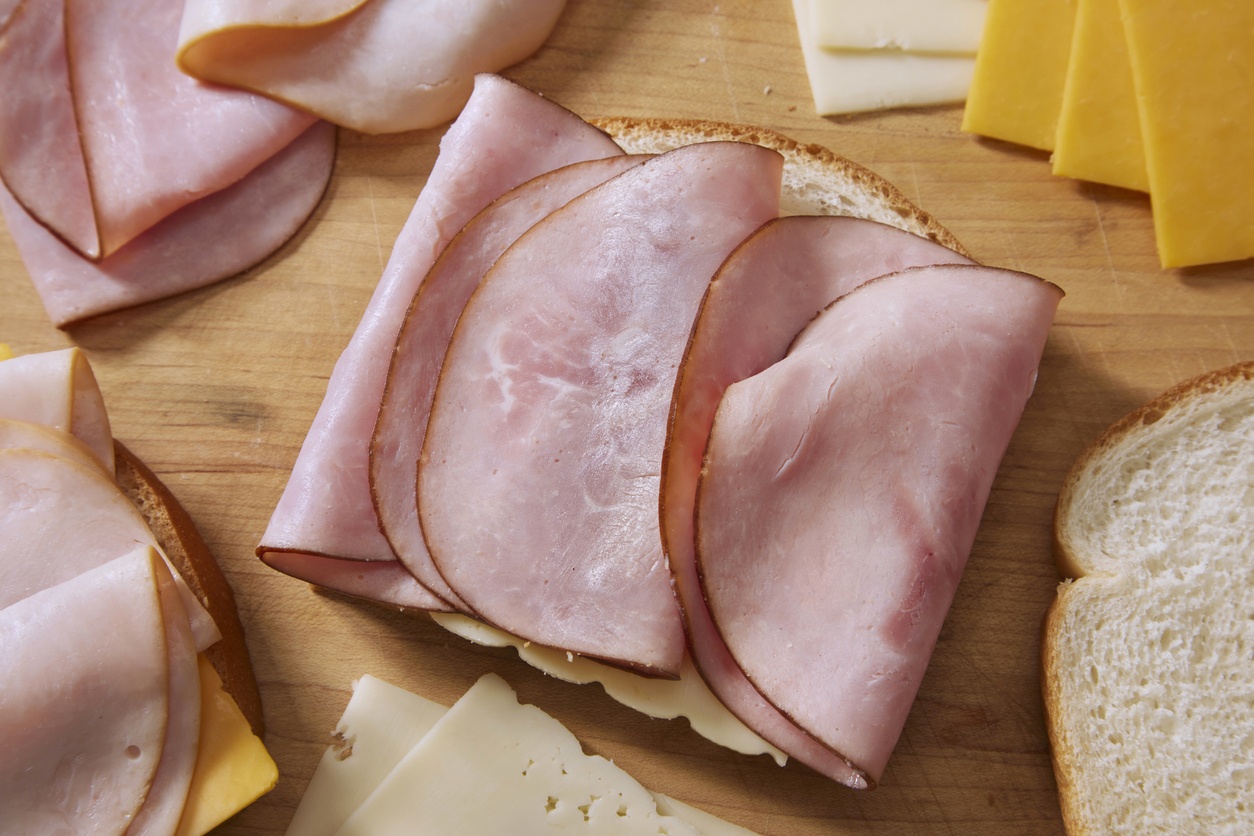
Cooked ham
Cooked ham is often considered a health food because it is a source of lean protein. However, commercial cooked ham is actually an ultra-processed food that often contains a large amount of artificial additives, preservatives and sodium. In general, commercial cooked ham is produced from processed pork that has undergone a series of processes, such as salting, liquid injection and high-temperature cooking. During these processes, many artificial ingredients, such as nitrites, nitrates and phosphates, are added to improve flavor, texture and shelf life. These artificial ingredients can have negative health effects if consumed in excess. For example, nitrites and nitrates have been linked to an increased risk of colorectal cancer, while excess sodium in cooked ham can contribute to hypertension and other related health problems. In addition, commercial cooked ham often contains a high amount of fat and calories, which can contribute to weight gain and an increased risk of chronic diseases.
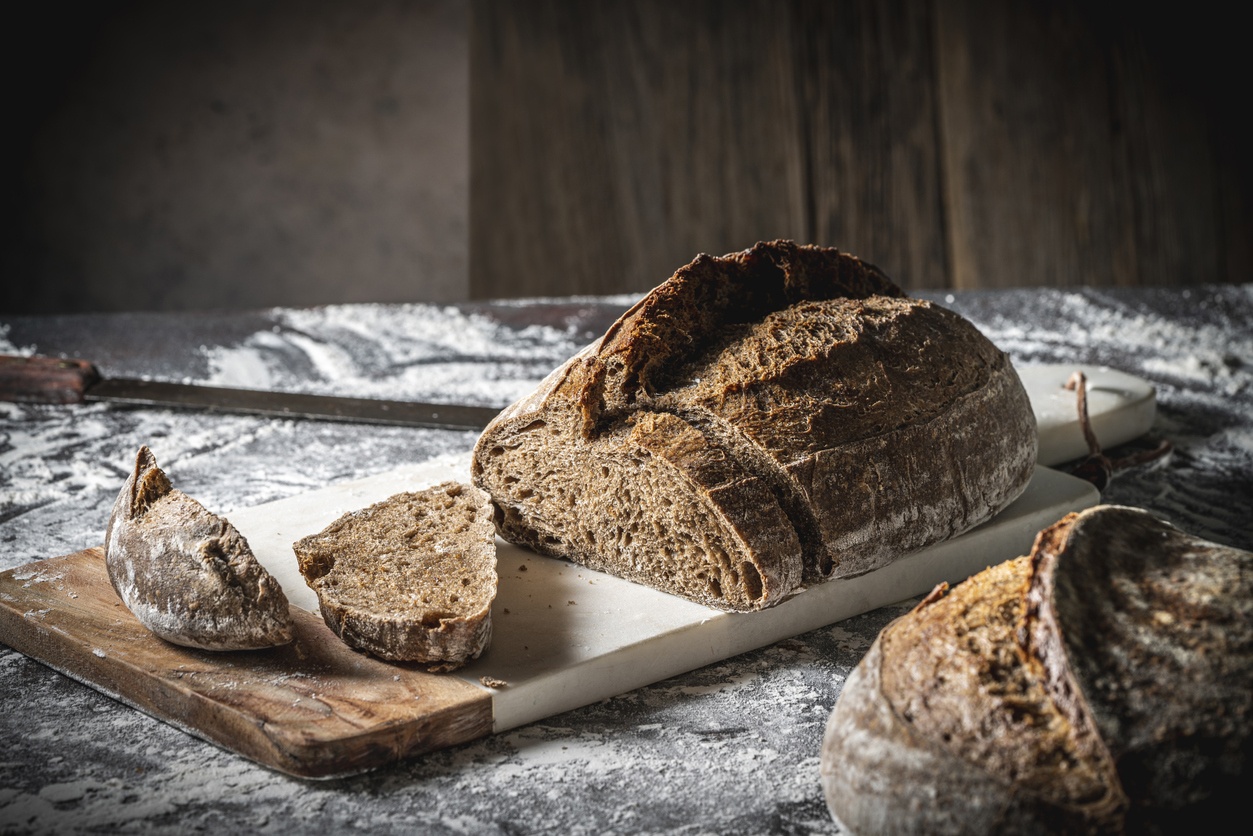
Pan integral
Whole-grain bread is often considered a health food because it contains fiber, vitamins and minerals. However, some commercial whole-grain breads may be ultra-processed foods, meaning they have been over-processed and refined, which diminishes their nutritional value. In general, whole-grain bread is made from whole grains, which contain the nutrient-rich husk, bran and germ. However, some commercial whole-grain breads may contain refined flour, which is an ultra-processed and over-processed ingredient. Refined flour is produced by removing the husk, bran and germ from grains, which decreases their fiber, vitamin and mineral content. In addition, some commercial whole-grain breads may contain a large amount of added sugars and other artificial additives, such as preservatives and dough improvers, which can have negative health effects if consumed in excess.
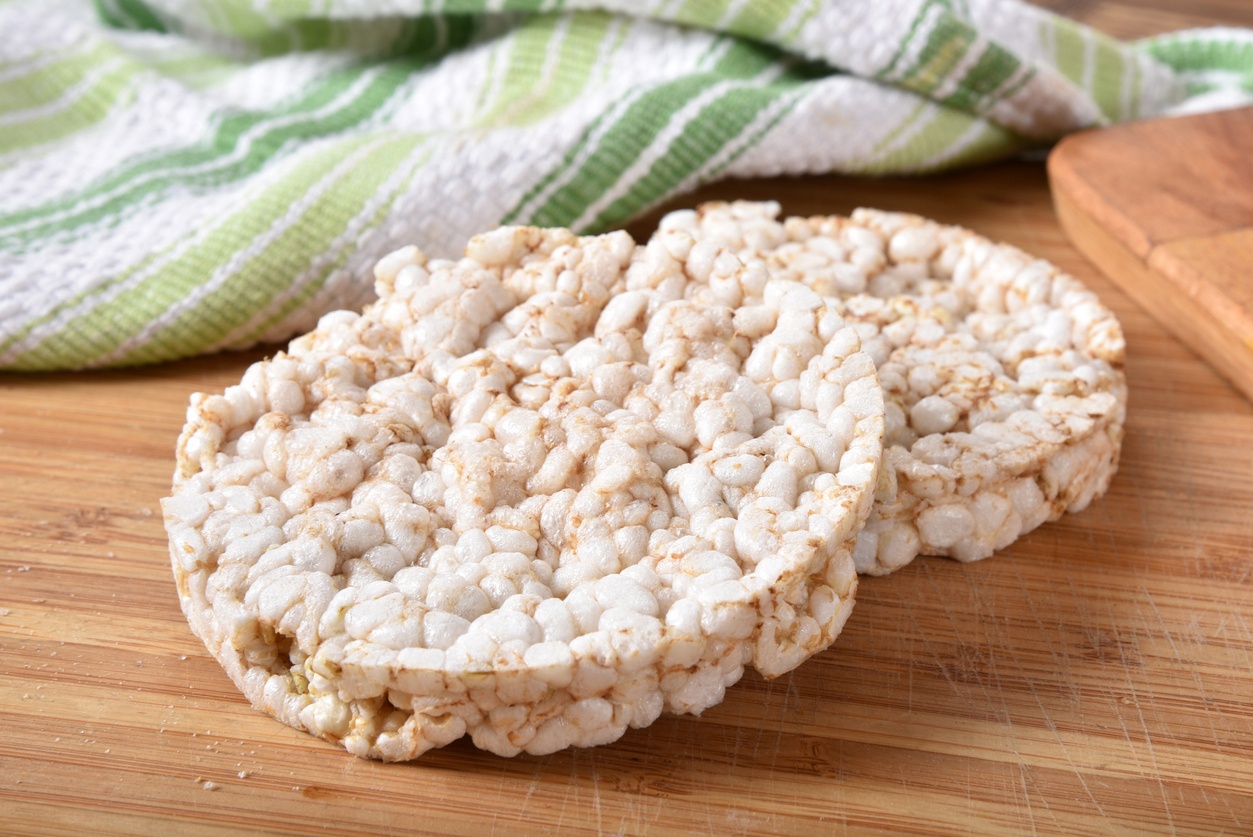
Tortitas de arroz o maíz
Rice or corn pancakes are often considered a health food because they are low in calories and free of saturated fat. However, these commercial rice or corn pancakes can be ultra-processed foods because they have been overly processed and refined. In general, rice or corn pancakes are made from whole grains, which contain important nutrients such as fiber, vitamins and minerals. However, some commercial brands may contain refined flour and other artificial additives, such as flavorings, colorings, preservatives and added salt, which can have negative health effects if consumed in excess. In addition, rice or corn pancakes often have a high glycemic index, which means they can rapidly increase blood sugar levels and cause energy spikes followed by energy crashes, which can affect feelings of fullness and lead to cravings for unhealthy foods.

Yogur helado
Frozen yogurt is often considered a health food because it contains probiotics and calcium. However, commercial frozen yogurt can be an ultra-processed food because it contains additives, added sugars and other substances that can be harmful to health if consumed in excess. In general, frozen yogurt is made from yogurt and frozen to obtain an ice cream-like texture. However, some commercial brands may contain a large amount of added sugars, high fructose corn syrups and other artificial sweeteners, which increases its caloric and sugar content. In addition, commercial frozen yogurt may contain a large amount of artificial additives, such as colorings, flavorings, stabilizers and preservatives, which can have negative health effects if consumed in excess.
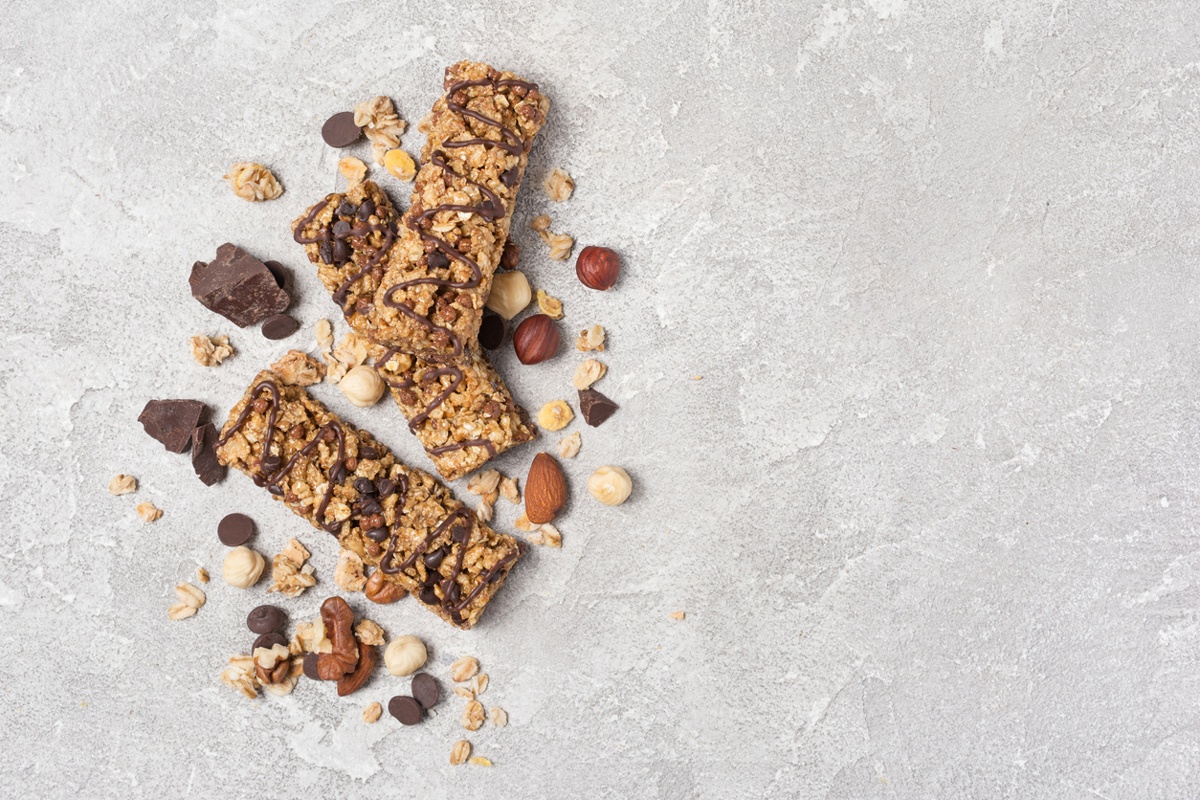
Cereal bars
Cereal bars are often considered a health food because they contain whole grains, nuts, fruits and other ingredients that are considered healthy. However, commercial cereal bars can be ultra-processed foods because they have been overly processed and refined. In general, cereal bars are made from whole grains, which contain important nutrients such as fiber, vitamins and minerals. However, some commercial brands may contain refined flour and other artificial additives, such as flavorings, colorings, preservatives and added sugars, which can have negative health effects if consumed in excess. In addition, cereal bars are often high in calories and sugar because they contain a large amount of high fructose corn syrup and other artificial sweeteners, which increases their caloric and sugar content. This can negatively affect health, especially in people with diabetes or those seeking to control their caloric intake.
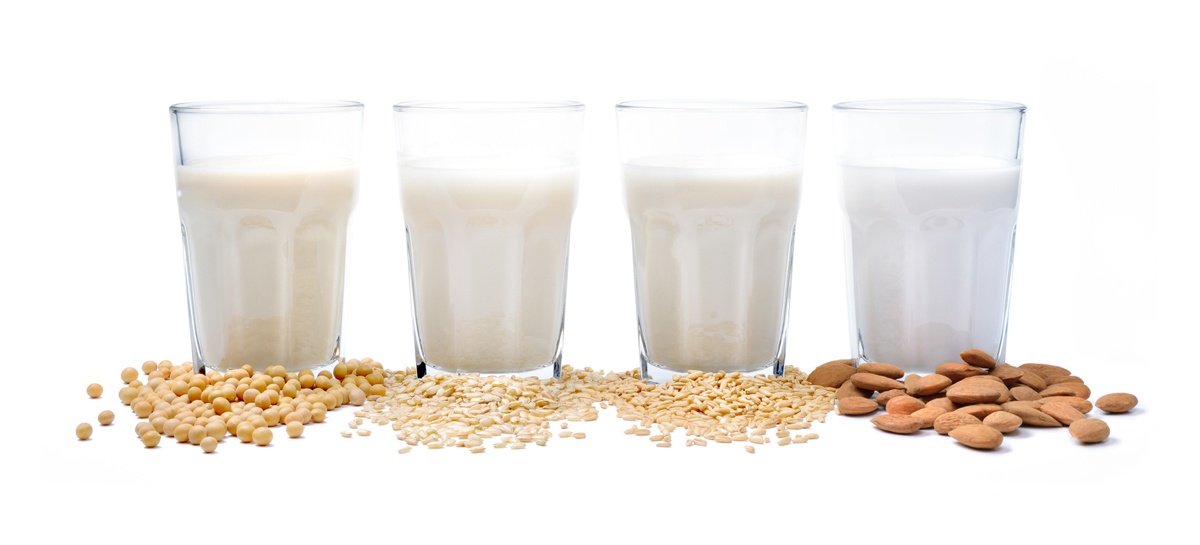
Vegetable beverages
Plant-based beverages are often considered a health food because they contain important nutrients and are an alternative for those who cannot or do not want to consume dairy. However, some commercial vegetable drinks can be ultra-processed foods because they contain a large amount of artificial additives and added sugars. In general, plant-based beverages are made from a mixture of water and ground grains or nuts, such as almonds, oats, soybeans, coconut, among others. However, some commercial brands may contain a large amount of added sugars and other artificial sweeteners, which increases their caloric and sugar content. In addition, some commercial vegetable drinks may contain artificial additives, such as thickeners, stabilizers, flavorings, colorings and preservatives, which can have negative health effects if consumed in excess. It is also important to note that commercial plant-based beverages do not always contain the same nutrients as cow’s milk, such as protein, calcium, and vitamins D and B12, and may contain fewer nutrients than is thought.






